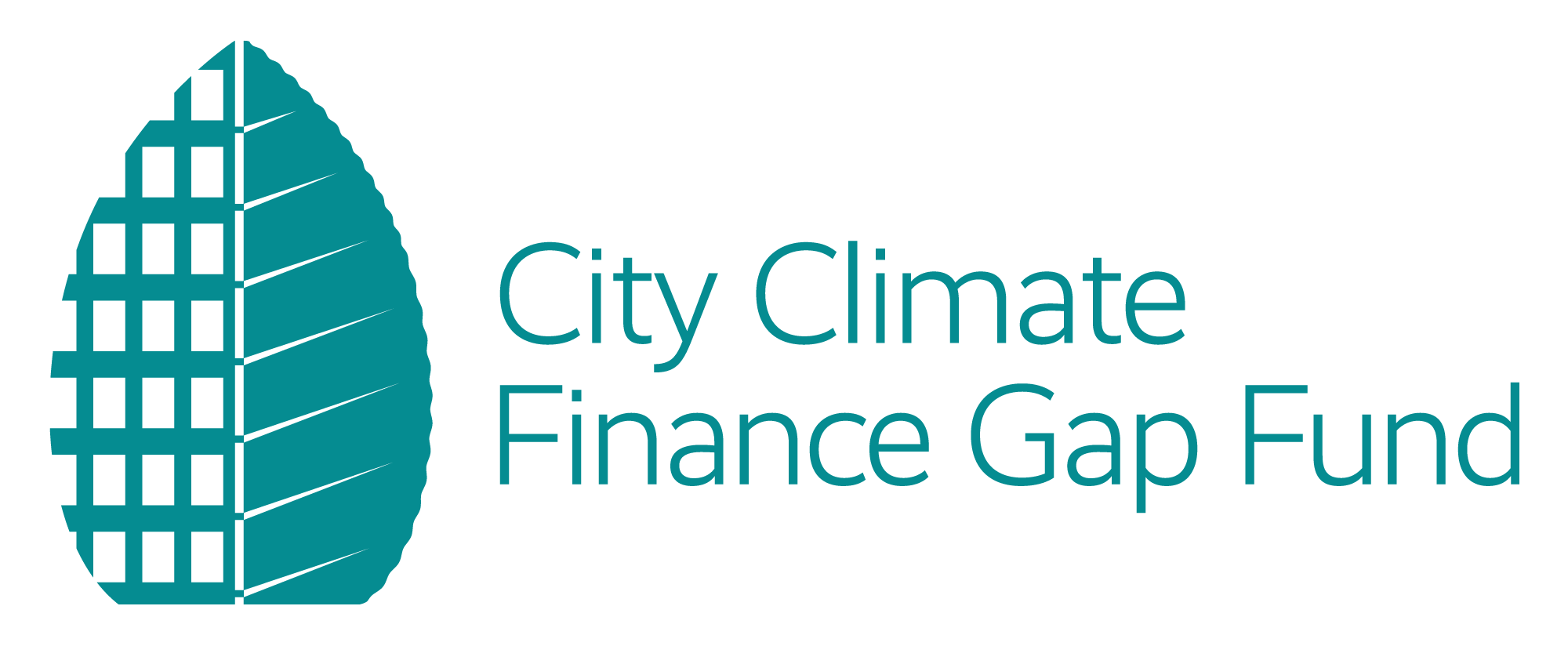The City Climate Finance Gap Fund at COP30 in Belém
The City Climate Finance Gap Fund and its partners are delighted to participate in several events during the 30th UN Climate Change Conference (COP30) in Belém, Brazil, as well as at the C40 World Mayors Summit 2025 in Rio de Janeiro, which will take place just ahead of COP30.
Together with our partners, we are contributing to the COP’s objective of accelerating action towards the goals of the Paris Agreement and the UN Framework Convention on Climate Change, with a particular focus on cities, local government, and urban systems. In addition, we aim to contribute to the Action Agenda 4 on Building Resilience for Cities, Infrastructure and Water, covering efforts on mitigation, adaptation, finance, technology, and capacity-building.
Through our participation, we seek to demonstrate how the Gap Fund’s work helps translate global climate ambition into tangible local investment projects.
Join us, either in person or virtually, for the events below and learn more about how the Gap Fund supports cities in taking climate action.
C40 World Mayors Summit 2025
Urban Water Resilience: Adapting cities to a changing climate
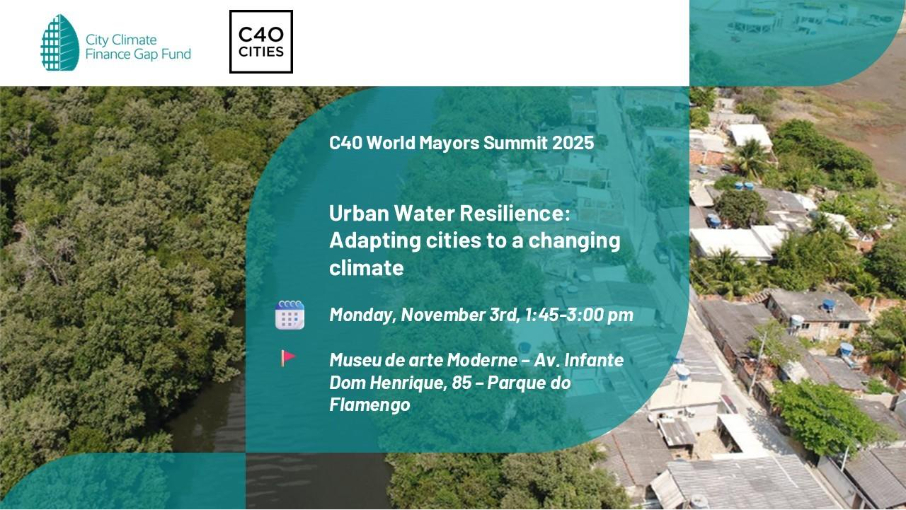
Session organized by C40 Cities in collaboration with the City Climate Finance Gap Fund, the European Investment Bank (EIB) and GIZ GmbH
Water is one of the most urgent challenges facing cities in a changing climate.
From floods to droughts, escalating risks threaten lives, livelihoods, and critical infrastructure, especially in vulnerable communities. This session will explore how cities, partners, and funders can collaborate to scale up water investments and impact – turning rising water risks into a catalyst for global transformation toward COP30 and beyond. C40 mayors will demonstrate bold leadership through the C40 Water Safe Cities Accelerator and EIB will provide an input on how finance can unlock and scale up urban water resilience. We will hear from leading experts and partners who are taking decisive action to deliver innovative, nature-based and smart solutions.
Investor’s Roundtable: Unlocking Investment for Cities and Nature
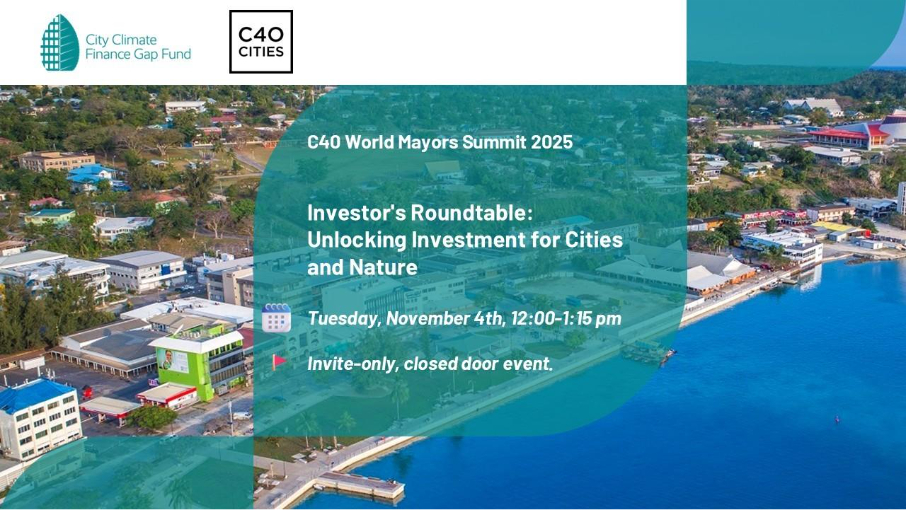
Session organized by C40 Cities in collaboration with the City Climate Finance Gap Fund, the European Investment Bank (EIB) and GIZ GmbH
Nature-based solutions can be key to enhancing urban resilience to climate change. But how to mobilize finance for urban nature projects?
The Investor’s Roundtable: Unlocking Investments for Cities and Nature brings together city leaders, financiers, investors and national stakeholders. Brazilian cities that are part of the Nature Solution Incubator and C40’s CHAMP Green Resilient Model Cities initiative will pitch their projects and directly receive feedback from financiers such as the European Investment Bank. The strategic platform also offers a space for cities to share experience and receive tailored guidance for projects that are still in the early stage of development. The opportunity to network and explore matchmaking possibilities is meant to improve access to funding and thereby catalyze urban NbS investments across Brazilian cities and replication for other CHAMP (Coalition for High Ambition Multilevel Partnerships) countries.
Nature’s Climate Potential: Connecting Financing Opportunities for Subnational Governments
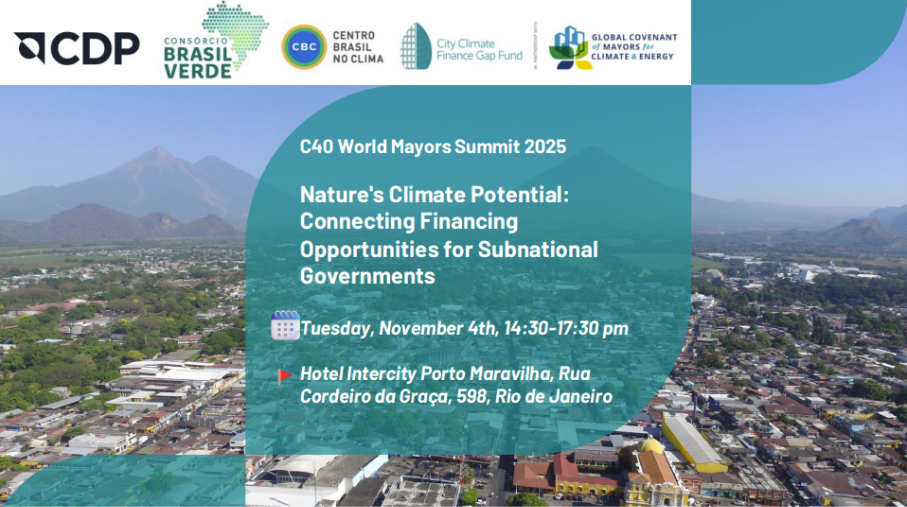
Session organized by CDP Latam, Consorcio Brasil Verde (CBV), Centro Brasil no Clima (CBC) and GCoM-Gap Fund Partnership
Nature-based solutions (NbS) are increasingly recognised as key to addressing climate change, biodiversity loss, and urban vulnerability, offering social, environmental, and economic benefits. Governments at all levels are integrating NbS and landscape approaches into their climate strategies, though subnational governments still face challenges in coordination and accessing finance to scale up initiatives.
Aligned with COP30’s focus on resilience and multilevel governance, the COP30 Local Leaders Forum and C40 Mayors Summit will highlight how cities and regions contribute to climate action and financing nature-based approaches.
In this context, CDP Latin America, the Green Brazil Consortium, the Brazil Climate Center, and the GCoM–Gap Fund Partnership will host a side event to showcase experiences and opportunities for financing NbS projects at the subnational level in Latin America, promoting dialogue, partnerships, and innovative governance models.
COP30
Leveraging public and private finance for urban climate action: the role of financial intermediaries
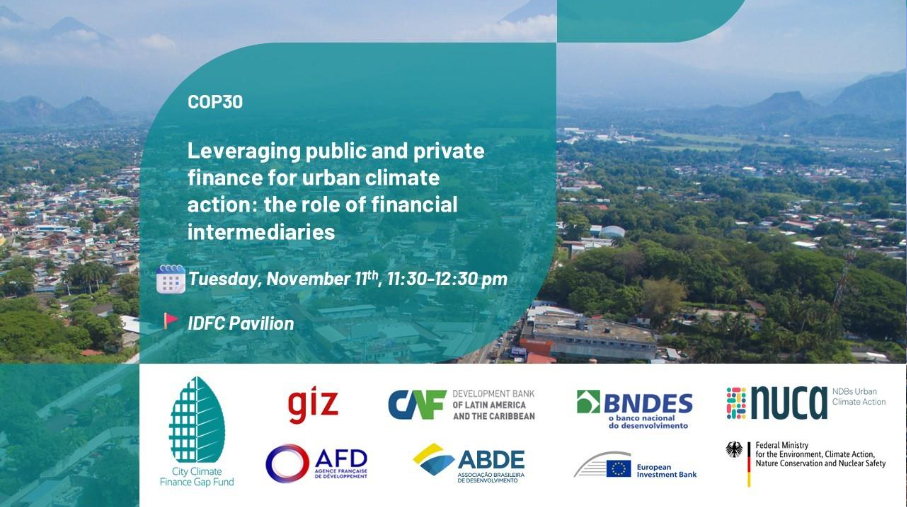
Session organized by City Climate Finance Gap Fund, European Investment Bank (EIB), GIZ GmbH, NBS Urban Climate Action program (NUCA), Agence francaise de Développment (Afd), Corporación Andina de Fomento (CAF), Associação Brasileira de Desenvolvimento (ABDE), Banco Nacional de Desenvolvimento Econômico e Social (BNDES), German Federal Ministry for Environment, Climate Action, Nature Conservation and Nuclear Safety (BMUKN)
This high-level event will showcase how financial intermediaries, including regional development banks, commercial banks and investment funds can contribute to bridging the gap between global climate ambition and tangible local investments. Following keynotes by representants of the European Investment Bank and the German Federal Ministry for Environment, Climate Action, Nature Conservation and Nuclear Safety, development partners from Europe and Latin America will discuss how financial intermediaries can enhance access to capital, de-risk investments, and catalyse private sector participation in urban climate initiatives.
Unlocking Subnational Finance for Green Sectoral Transformation: a focus on Buildings and Cooling
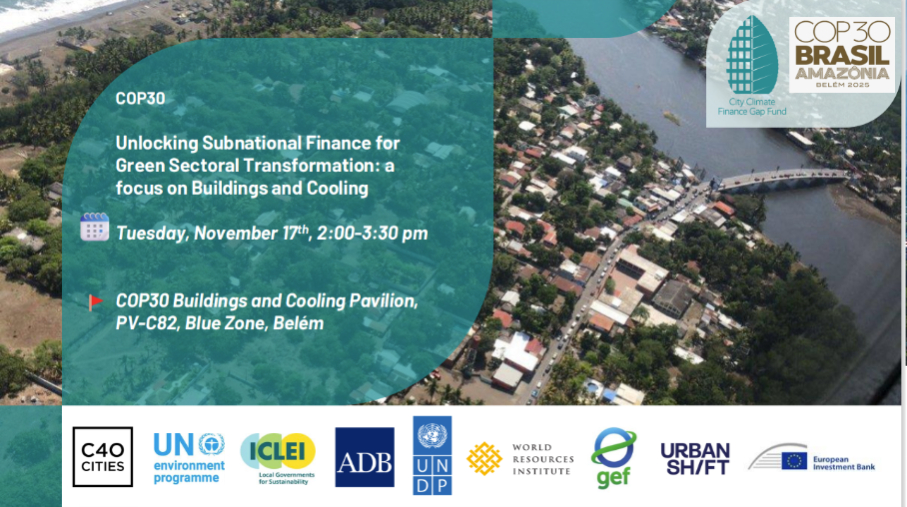
Session organized by the United Nations Environment Programme, in partnership with C40, ICLEI, EIB, the Asian Development Bank (ADB), United Nations Development Programme (UNDP), World Resources Institute, the Global Environment Facility (gef) and Urban Shift
This session highlights efforts to unlock local financing, starting with a panel on unlocking subnational finance for green infrastructure, spotlighting systemic barriers and solutions to how cities can strengthen their institutional and financial capacity to access climate finance. The second panel dives into sectoral solutions—from passive cooling and clean construction tonrenewable energy integration—showing how cities are scaling building and cooling strategies to deliver just climate transitions.
